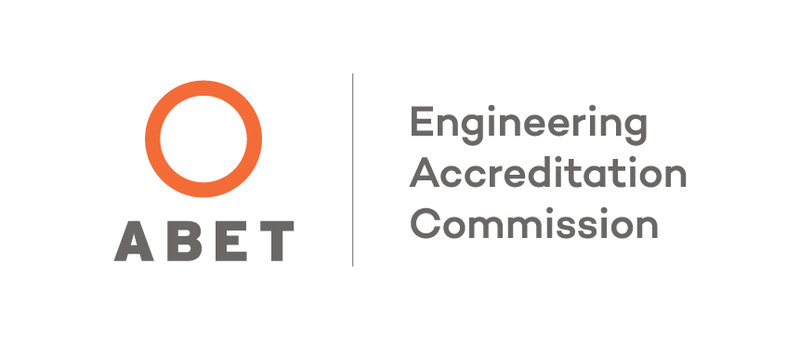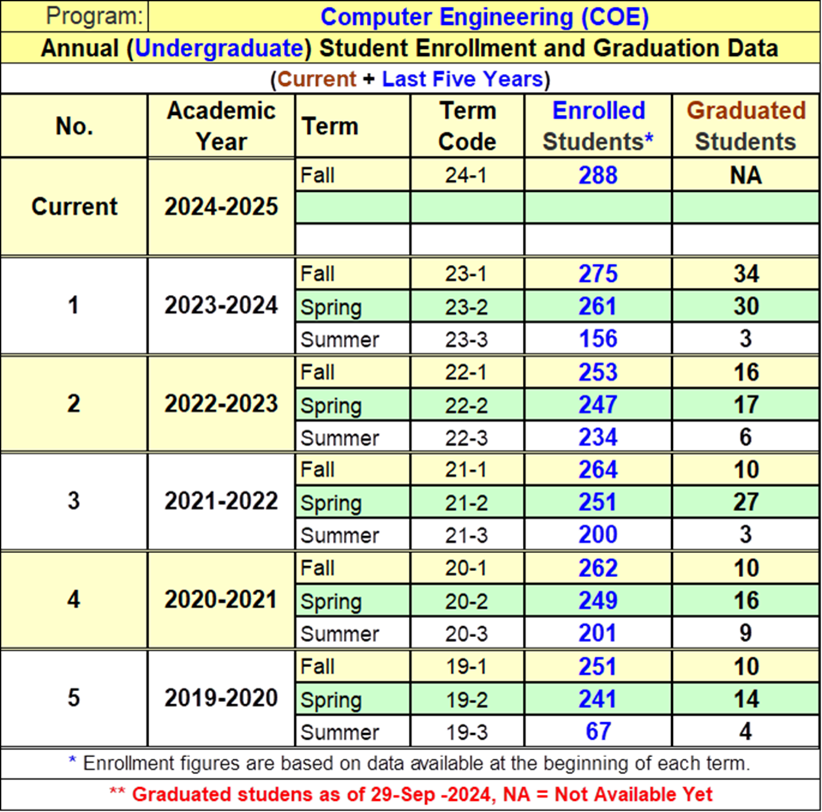ABET Accreditation
ABET Accreditation

The undergraduate BSc. program in Computer Engineering is accredited by the Engineering Accreditation Commission (EAC) of ABET, https://www.abet.org, under the General Criteria and the Computer Engineering Program Criteria.
Program Educational Objectives:
In line with the missions of KFUPM, the College of Computing & Mathematics (CCM), and the COE department, the COE department has defined a set of program educational objectives that translate its mission into defined tasks. The objectives are measures of the graduates' achievements 3 to 5 years after completing the program. The objectives of the Computer Engineering (COE) Program are to produce graduates who, after a few years of graduation, will have:
- Establish a successful professional career in computer engineering or related fields.
- Lead or actively participate in initiatives that utilize emerging technologies and leverage business opportunities in line with the Kingdom's Vision.
- Pursue their professional development through self-learning, graduate studies, or professional certification.
Student Outcomes:
Student Outcomes are statements describing what students are expected to learn and be able to do by graduation. They represent the skills, knowledge, and behavior that students will acquire through the program. The Student Outcomes support the Program's Educational Objectives. The Computer Engineering program at KFUPM has the following Student Outcomes:
- An ability to identify, formulate, and solve complex engineering problems by applying principles of engineering, science, and mathematics.
- An ability to apply engineering design to produce solutions that meet specified needs with consideration of public health, safety, and welfare, as well as global, cultural, social, environmental, and economic factors.
- An ability to communicate effectively with a range of audiences.
- An ability to recognize ethical and professional responsibilities in engineering situations and make informed judgments, which must consider the impact of engineering solutions in global, economic, environmental, and societal contexts.
- An ability to function effectively on a team whose members together provide leadership, create a collaborative and inclusive environment, establish goals, plan tasks, and meet objectives.
- An ability to develop and conduct appropriate experimentation, analyze and interpret data, and use engineering judgment to draw conclusions.
- An ability to acquire and apply new knowledge as needed, using appropriate learning strategies.
Yearly Student Enrollment

COE ABET Resources:
University-College and Department Mission Statements